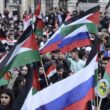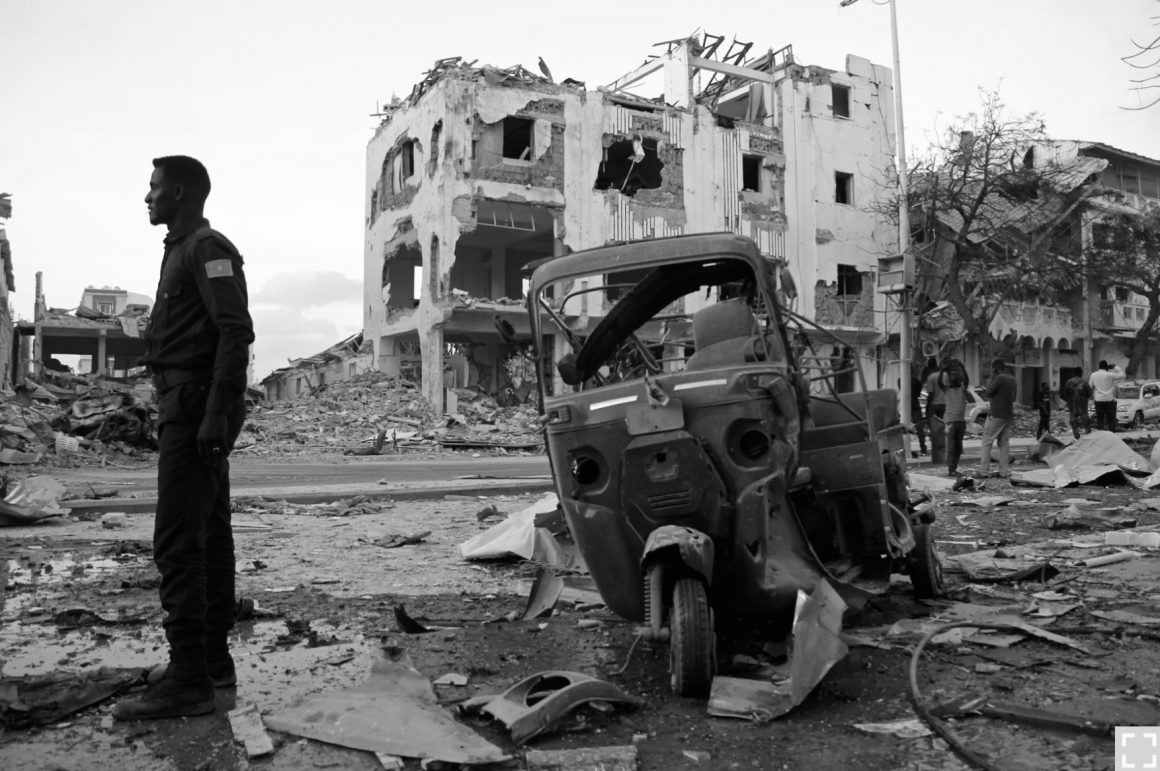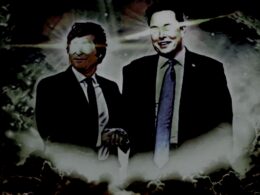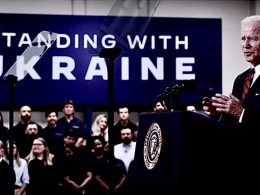The damage from a 2019 AFRICOM airstrike in Somalia that was found to have amounted to a war crime
Last month, the neoconservative think tank the Eurasia Group made it clear what the State Department intends to do now that Washington’s goals in Ukraine have overall failed to be realized: shift towards a hybrid war against BRICS, and against the “swing state” countries which may support multipolarity. Now this month, another one of these think tanks has provided more clues as to what this next phase in the cold war entails. The American Security Project says the following about how Washington should try to keep these countries from leaving the USA’s sphere of influence:
The U.S. must tread carefully when aiming to strengthen its relations, and approach diplomatic conversations with a strong focus on multilateralism. Many countries do not want to choose between China and the U.S., and it will be in the U.S.’ favor to reduce its emphasis on competition, and focus on what makes a partnership appealing to a target country. Historically, when the U.S. put pressure on states to switch camps from China to the U.S., such as with Cambodia during the Cold War, it resulted in greater Western resentment. Thus, the U.S. must emphasize cooperation when approaching conversations with Brazil, South Africa, and India.
Such a strategy has proven effective; this year, the Philippine government agreed to let the U.S. expand its military operations within the country. This is an outcome which Washington was able to make possible due to its delicate diplomacy of selling the government on protecting its national security interests, while carefully avoiding any references to China. The hegemon successfully appealed to the opportunistic interests of the leaders it was dealing with, getting these leaders to effectively assist in the cold war on China without making them feel they were actually escalating things. Because of this, the biggest factor the hegemon has to worry about in the Philippines at this stage is the country’s anti-imperialist movement; which, like our one in the USA, can only make Washington’s war operations untenable if it gains far more influence. The hegemon’s ambitious action has provoked further resistance from the country’s people, but that doesn’t concern it; at least not as long as this resistance remains small enough of a threat.
That shows how we can sabotage this hybrid warfare campaign: by fighting the information war against the empire’s psyops, and building the anti-imperialist movement. The hegemon is undergoing the same process of terminal decline that all past fallen empires have, yet there continue to be these circumstances in certain places where it can fortify its control.
If we act like the fight against U.S. hegemony is less important than it truly is, the empire will be enabled to lengthen its lifespan, carrying out military buildup in the parts of the globe where this is still possible for it do to. If we act serious about this task, we’ll bring an acceleration of U.S. hegemony’s decline. The way to do this is by exposing the evil intentions behind the seemingly banal and innocent statements about “diplomacy,” and “protecting U.S. interests.”
To see how much of an incentive the hegemon now has to cause global destruction, we have to understand how desperate of a situation it’s put itself in. As NATO’s military humiliation in Ukraine becomes apparent, and the conflict with Russia brings more disadvantages to the USA than to Russia, Washington seeks to recover from its failed geopolitical gamble by making it so that Russia finally loses the economic war. Washington was depending on the sanctions successfully collapsing Russia’s economy for this proxy war to represent an overall gain; otherwise, what gains the hegemon has gotten from it (the restoration of NATO’s influence over Europe, the ending of the Russian-German oil pipeline project) would ultimately not be enough to reverse the transition to multipolarity. And since this transition has been accelerated by the conflict, the long-term outcome can only be one where the countries participating in Washington’s war undergo sped-up internal collapse, while the rest of the globe builds itself up.
In this scenario, the anti-imperialist, proletarian revolutionary movements across the globe can only gain more of a popular mandate to overthrow their pro-imperialist governments; as the more neo-colonial superprofits decline, the less functional the imperial powers become, and the less they can keep their social systems stable. Such is the dire blowback the hegemon will see from its failed Ukraine gamble, unless it can destroy Russia and China through means other than sanctioning them or trying to drain their military resources; the empire needs to take away the international friends that its rivals have within this fight.
The refusal by the vast majority of the world’s countries to sanction or condemn Russia’s action in Ukraine; the implementation by these countries of Chinese-led development initiatives, which the Ukraine war has accelerated; the global shift away from the dollar, recently made more substantial by the introduction of a BRICS currency; these are the problems Washington has to solve in order to isolate its challengers.
Initially, the State Department will try to do this by bringing about the same kinds of cooperative efforts which it’s brought to the Philippines. Should a country not be as accommodating as the Philippines has been, it will try to coerce that country; and if the country still doesn’t comply, it will resort to an attempt at full nationwide destabilization. This is what the hegemon has already been doing throughout the new cold war; yet with the urgency to win created by its Ukraine defeat, we’re now potentially going to see places like South Africa and Brazil become targeted in the same ways places like Ethiopia and Myanmar have. It depends on how willing these players are to give the global tyrant what it wants.
And that depends on how much Washington decides to ask from the targets of this mafia-style “diplomacy.” So far Washington hasn’t been targeting Lula for his building relations with China, because it knows it has to coexist with Latin America in order to economically survive at the same it maintains maximal Russia sanctions. We know the U.S. isn’t going to lessen the sanctions, so how much can it afford to strain its relationships within the American hemisphere? The more unsatisfied it gets with the successes of BRICS, the more it becomes willing to ignore that question, and to escalate the situation.
Should these escalations occur—and they inevitably will to at least a certain degree—our job will be to bring attention to the crimes our government is committing against the people of the world. To get a sense of what these future vile acts will look like, we can examine the things Washington has been doing to places like Africa and southwest Asia.
These crimes have been kept as secret as the government can manage, yet we have plenty of recent examples to point to as indictments of U.S. foreign policy. For one, there are the hidden wars AFRICOM has facilitated; as reported on by The Intercept’s Nick Turse, and by the Brennan Center expert he quotes here:
“This proliferation of secret war is a relatively recent phenomenon, and it is undemocratic and dangerous,” wrote Katherine Yon Ebright, counsel in the Brennan Center’s Liberty and National Security Program…The CIA began building the Puntland Security Force in 2002 to battle the Al Qaeda-affiliated al-Shabab and later the Islamic State in Somalia, or ISS. The force was transferred to U.S. military control around 2012 and went on to fight alongside U.S. Special Operations forces for a decade. “In Puntland, we built that capability, training them at the tactical level and in how to support themselves and follow a good counterinsurgency strategy against al-Shabab,” Don Bolduc, the former chief of Special Operations Command Africa and now the Republican candidate for Senate in New Hampshire, told The Intercept in a 2019 interview. Ebright notes that the proxy fighters were “largely independent of the Somali government, despite being an elite armed brigade and one of Somalia’s most capable special operations units. And their relationship with U.S. forces was long kept secret, with U.S. officials disavowing the presence of military advisers in Somalia until 2014.” More troubling, her analysis suggests that for a significant period of time, there was no clear legal basis for the U.S. military to fight alongside and direct these forces.
Another example is the U.S. military’s ongoing violations of the Syrian people’s right to national autonomy, and to the control over their own resources. As the outlet Al Mayadeen reported this month…
…[a] Russian military official said the United States is carrying out ‘systematic violations of protocols’ implemented to avoid clashes between the two militaries after drones belonging to the US-led international coalition violated nine times closed airspace during Russian-Syrian joint exercises. It is noteworthy that in August 2022, the Syrian Oil Ministry revealed that the US occupation forces loot the majority of Syria’s oil, knowing that the daily production of the eastern oil fields is 80.3 thousand barrels. In December of 2022, Syria’s Foreign Ministry said the US occupation forces and their affiliated military groups’ systematic lootings of Syrian oil, wheat, and other national resources have amounted to direct losses valued at $25.9 billion and indirect losses valued at over $86 billion.”
These accounts reveal the true nature of Washington’s designs for expanding its global military presence, and for asserting its economic dominance. The great-power competition, as U.S. strategists have called it, is not about a country employing reasonable measures for ensuring it gets treated fairly on the international stage; it’s about a horrifically overpowered global mafia state resorting to war crimes, so that it may stop the Global South from becoming free of its exploitative practices. U.S. foreign policy is indefensible, a perpetual series of atrocities committed in the name of freedom and democracy. The more workers in the imperial center are made aware of this; the more clearly they come to grasp how their own exploitation is made possible by U.S. hegemony; the more the new cold war becomes untenable.
————————————————————————
If you appreciate my work, I hope you become a one-time or regular donor to my Patreon account. Like most of us, I’m feeling the economic pressures amid late-stage capitalism, and I need money to keep fighting for a new system that works for all of us. Go to my Patreon here.
To keep this platform effective amid the censorship against dissenting voices, join my Telegram channel








